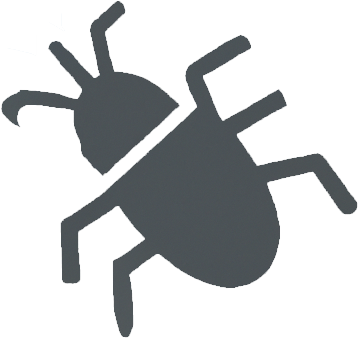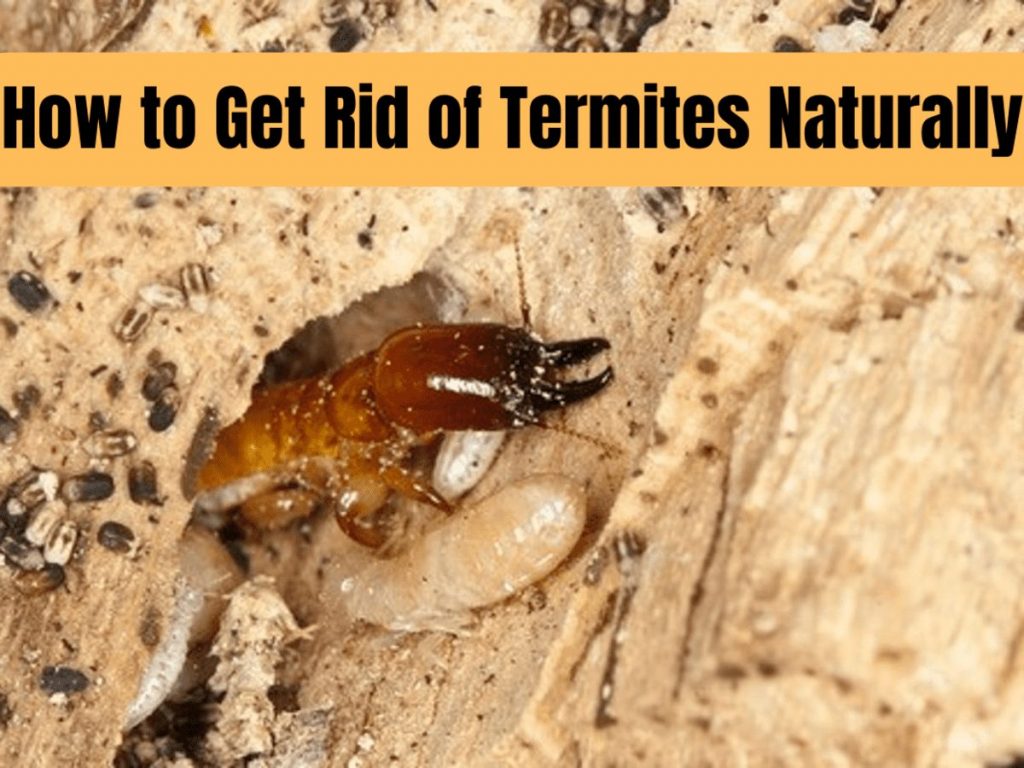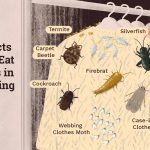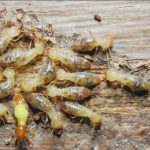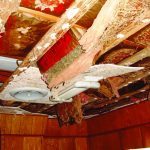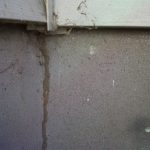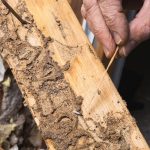Termites are a common household pest that can cause serious damage to your home if left untreated. Fortunately, there are natural solutions that can help you get rid of termites without using any harsh chemicals or expensive treatments. In this article, we’ll share some simple and effective solutions to help you keep your home termite-free.
Types of Termites
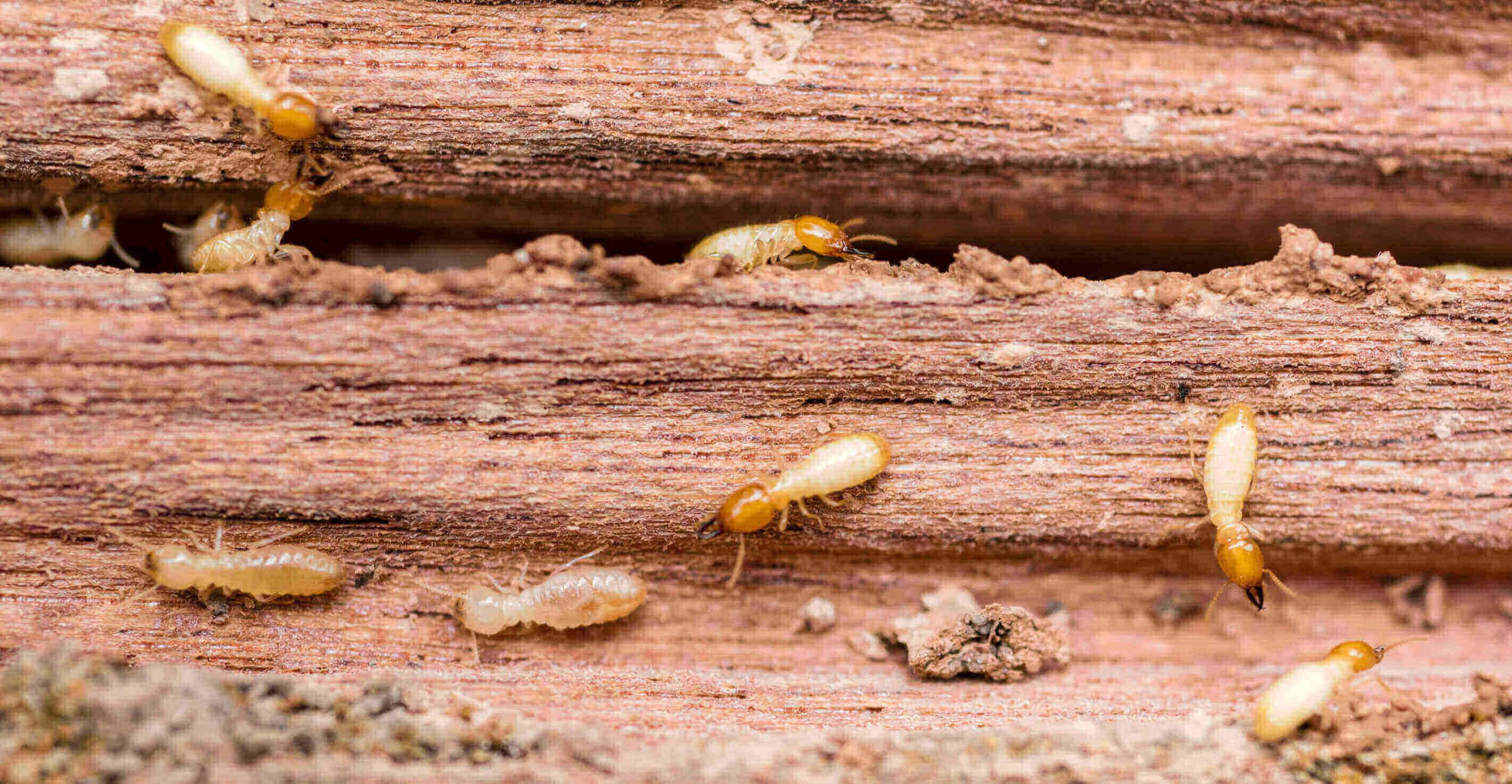
Termites are separated into three distinct categories—drywood, dampwood, and subterranean. Drywood termites are the most common in the United States and live in dry wood, such as dead trees and branches. Dampwood termites live in moist wood, such as stumps and fallen logs. Subterranean termites are found in soil and require contact with the ground in order to survive. Subterranean termites are the most common in the world and often enter homes through foundation cracks.
Signs of Termites
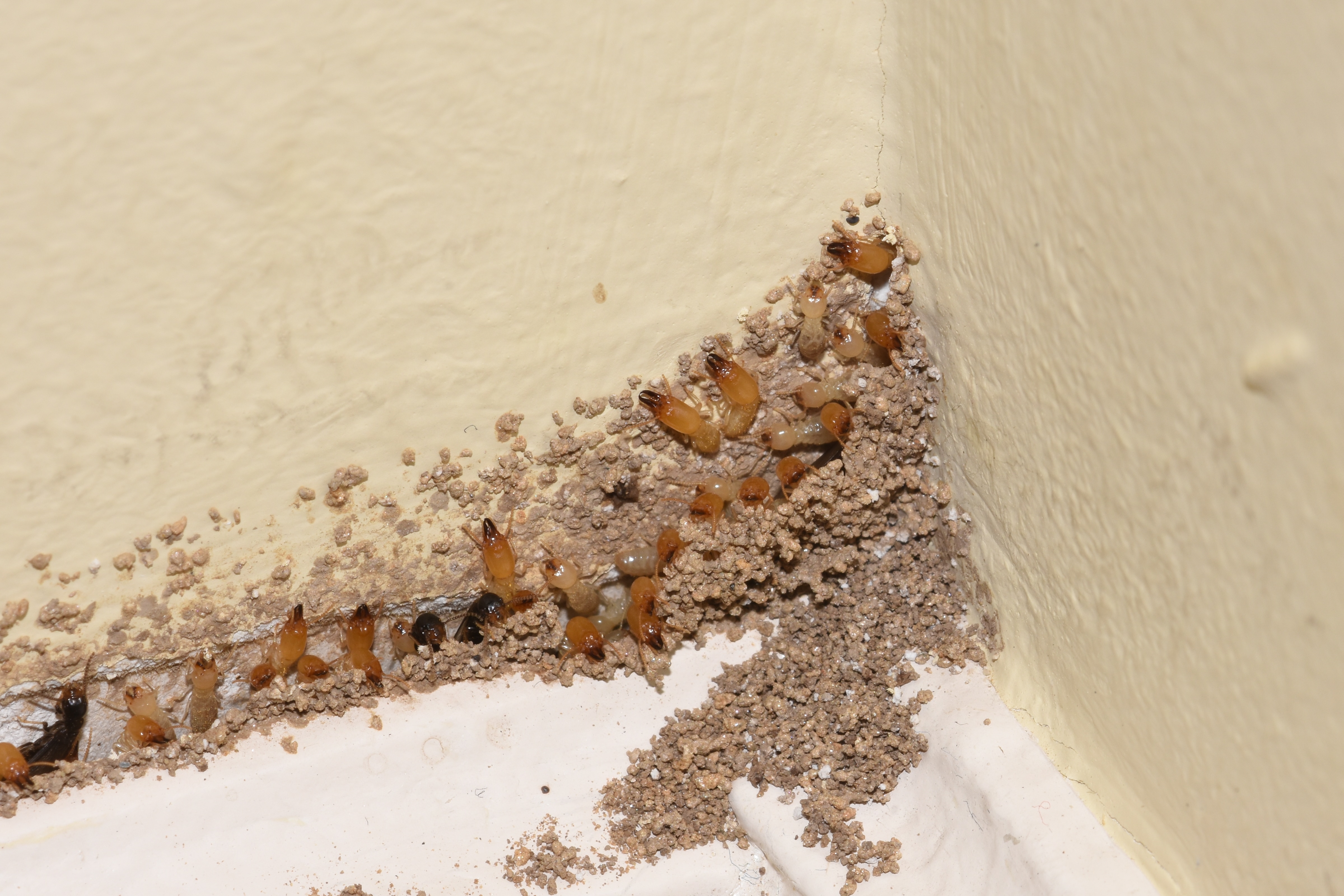
| Sign | Description |
|---|---|
| Mud Tubes | Termites travel through mud tubes they build, often on walls or foundations of a house. |
| Discarded Wings | After swarming, termites discard their wings, which can be found near windowsills and other areas. |
| Damaged Wood | Termites eat wood from the inside out, leaving a thin, paper-like surface that easily flakes away. |
| Hollow Sounds | Tap wood in a suspected area. If it sounds hollow, it may be a sign of termite activity. |
| Visible Insects | Look for the insects themselves. Winged termites are most often seen swarming in the spring. |
Natural Ways to Deter Termites
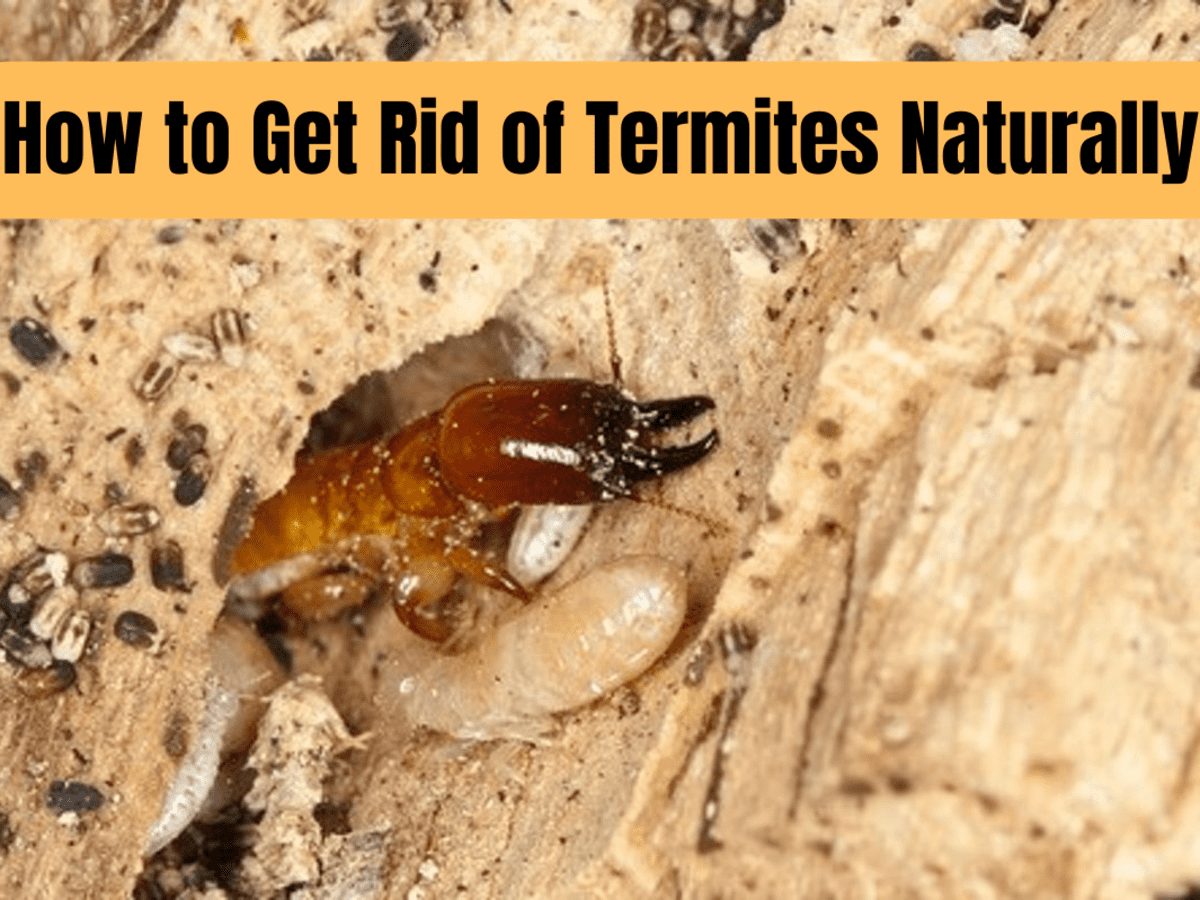
Prevention
Reduce moisture in and around your home by repairing leaky pipes and faucets, and removing sources of standing water. Keep wood away from the foundation of your home, and use dehumidifiers and fans to reduce moisture in basements, attics, and crawl spaces.
Traps
Use termite baiting systems, such as in-ground traps, to control termites. These are set up around the perimeter of the home and can be monitored for activity. If termites are found, the bait can be replaced with a chemical pesticide to kill the colony.
Plants
Certain plants have natural insecticidal properties that can help repel termites. Neem oil and eucalyptus oil are two popular choices that can be sprayed around the perimeter of your home.
Physical Removal
If you spot a termite nest in your home, you can physically remove it. Use a vacuum to suck up the nest and then discard it. To prevent future infestations, seal up any openings in the wood or around window frames that may be inviting to termites.
Biological Control
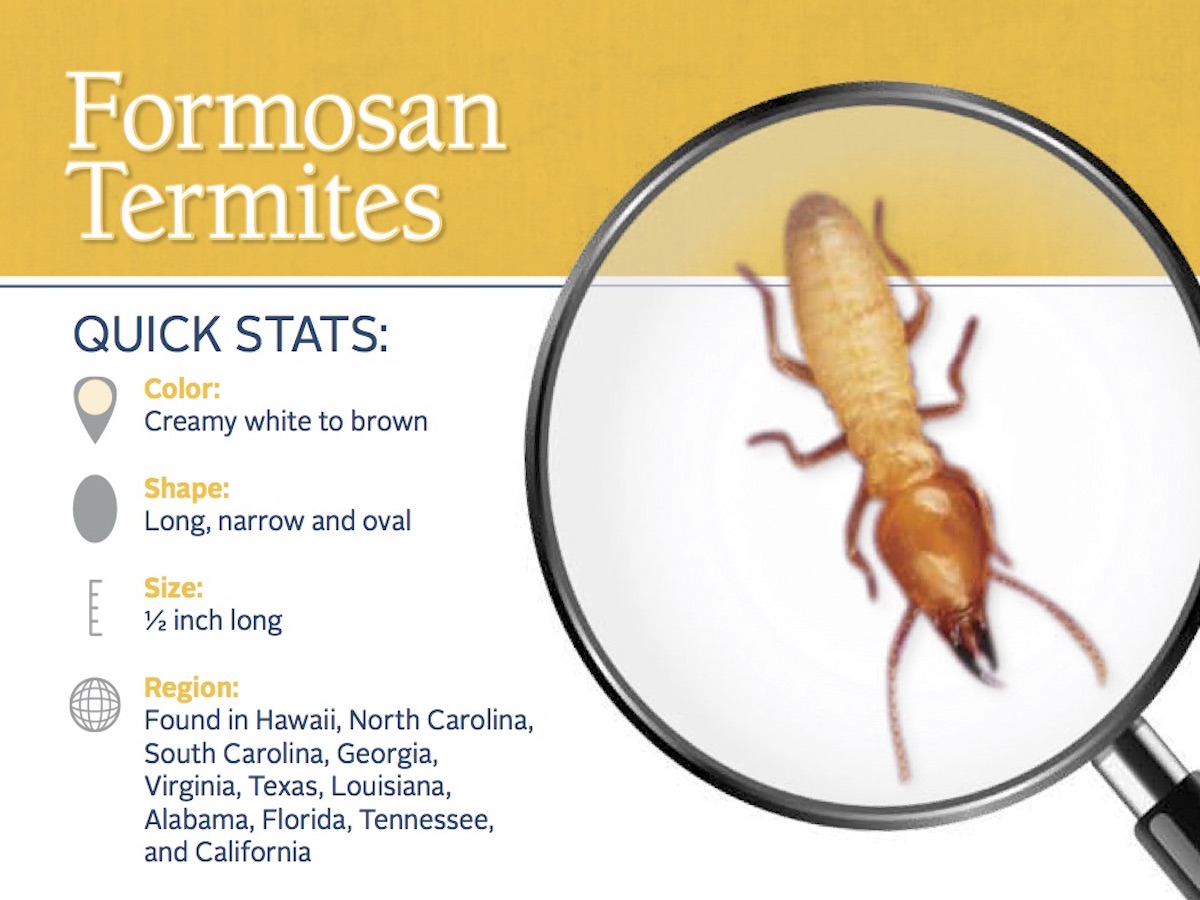
Biological control of termites is possible by introducing natural predators, such as parasitic nematodes, into the affected area. These nematodes are microscopic worms that live in soil and feed on the termites, killing them in the process.
Beneficial Nematodes
Beneficial nematodes are an effective and natural way to get rid of termites. These tiny worms seek out termites, enter their bodies and release bacteria that cause the termites to die. They are available from many garden centers and online retailers.
2. Natural Insecticides
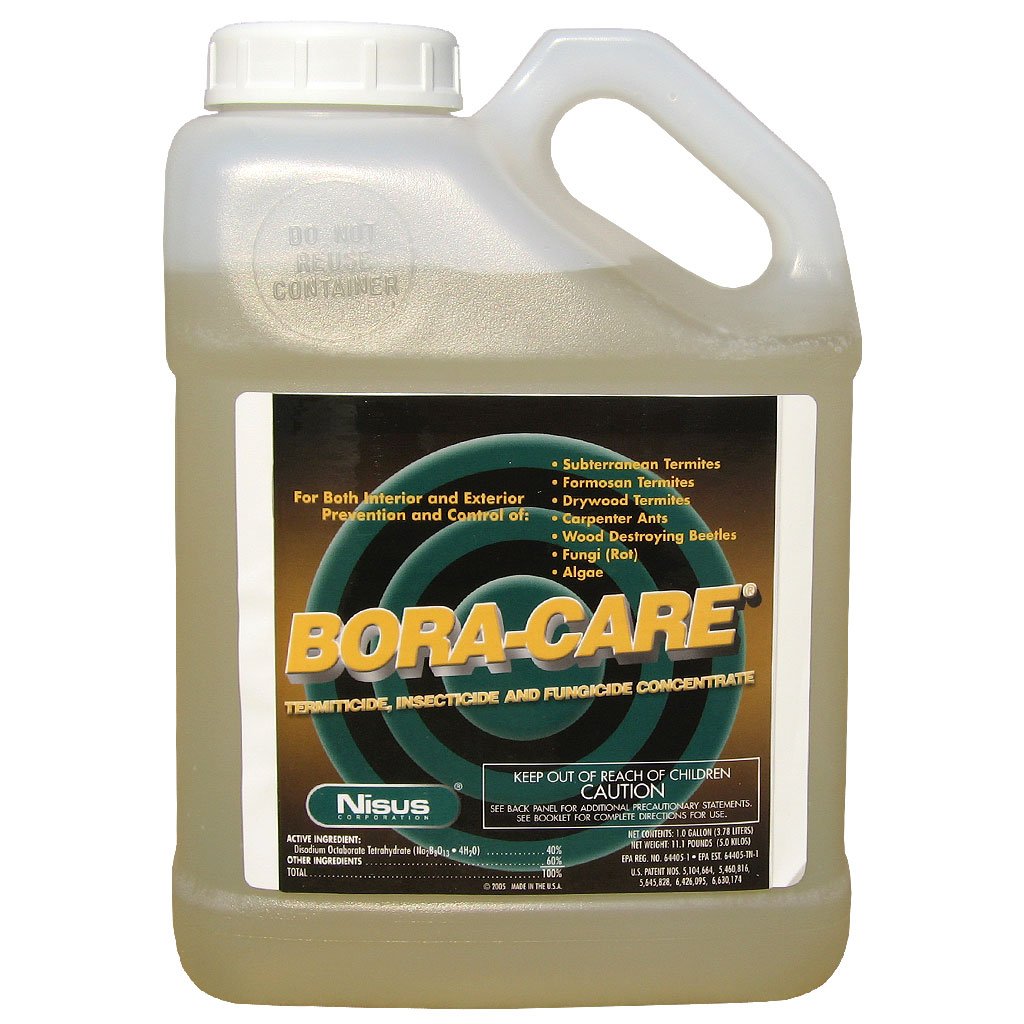
| Name | Description |
|---|---|
| Diatomaceous Earth | This naturally occurring compound is made from fossilized remains of tiny aquatic organisms. It works by killing insects when they come in contact with it, either by abrading their outer shell or by absorbing their bodily fluids. |
| Neem Oil | Neem oil is derived from the seeds of the neem tree, a tropical evergreen. It works by disrupting the hormones of insects, making them unable to reproduce and eventually die off. |
| Pyrethrum | Pyrethrum is a naturally occurring insecticide derived from the chrysanthemum flower. It works by paralyzing insects when they come in contact with it, causing them to die. |
| Essential Oils | Essential oils, like peppermint, lavender, and eucalyptus, can be used to repel insects and discourage them from entering your home. They work by masking the scent of food and making it difficult for insects to find it. |
Natural insecticides are a great choice for those looking to naturally get rid of termites. Diatomaceous Earth, Neem Oil, Pyrethrum, and Essential Oils are some of the most common natural insecticides. Diatomaceous Earth kills insects by abrading their outer shell or absorbing their bodily fluids. Neem Oil works by disrupting the hormones of insects, making them unable to reproduce. Pyrethrum paralyzes insects when they come in contact with it, causing them to die. Essential Oils can be used to repel insects and discourage them from entering your home by masking the scent of food and making it difficult for insects to find it.
Professional Treatment Options
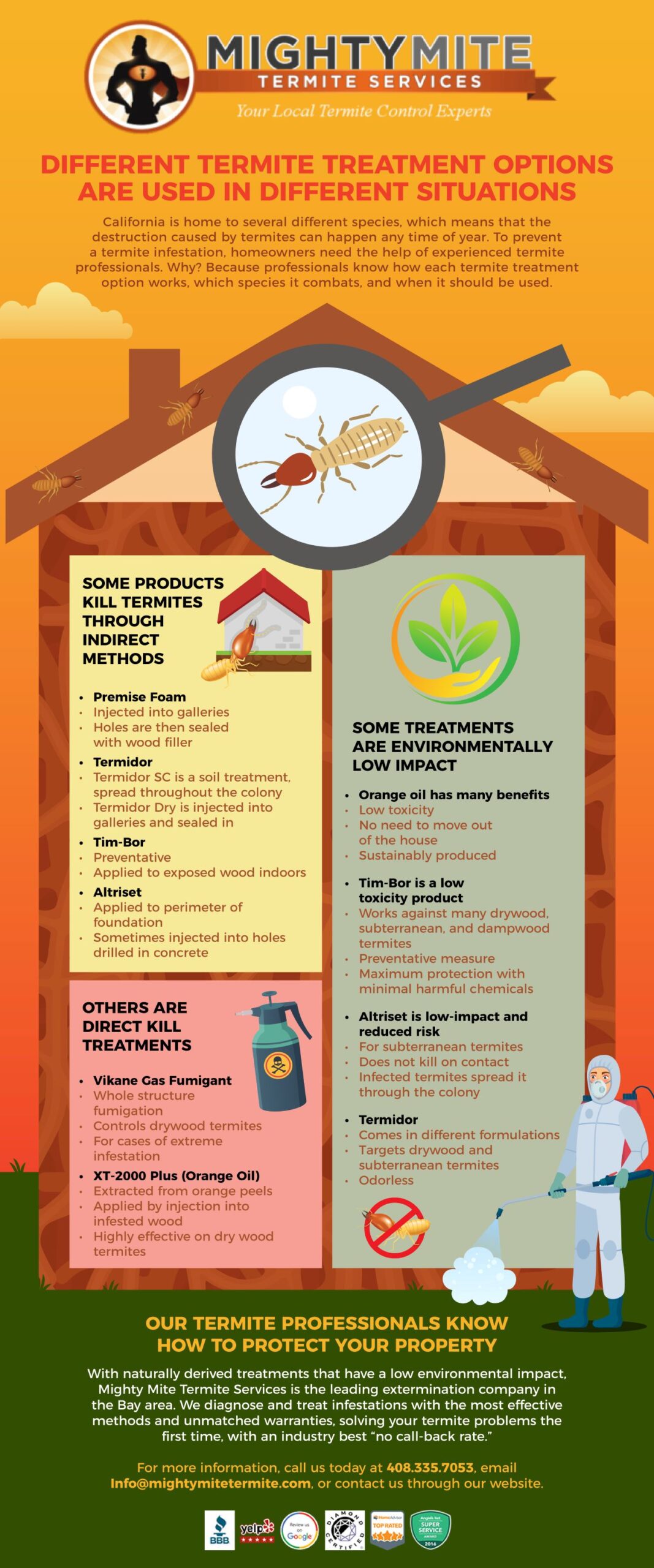
Professional treatment options can involve a variety of methods, including chemical treatments, heat treatments, and fumigation. Chemical treatments involve applying a pesticide to the affected area, and can be used to target specific areas of infestation. Heat treatments involve raising the temperature of the affected area to a level that will kill the termites. Fumigation requires sealing off the affected area and filling it with a gas that will kill the termites. Professional treatments may also include physical removal of the termites and the use of baiting systems.
DIY Treatment Options
Using a combination of natural or chemical measures is the best way to get rid of termites. Some DIY treatment options include:
* Treating wood with borate: Borate is a naturally-occurring mineral salt that is toxic to termites. To apply it, mix borate with warm water and spray it on any wood that has been infested with termites.
* Using diatomaceous earth: This is a powder made from fossilized diatoms, which are small aquatic organisms. Sprinkle it around the affected area to create a barrier that termites can’t pass through.
* Introducing nematodes: Nematodes are microscopic worms that feed on termites. Introducing them to the affected area can help to reduce the termite population.
* Applying orange oil: This is a natural oil that is toxic to termites. To use it, mix the oil with water and spray it on the affected area.
* Eliminate moisture: Termites need moisture to survive, so reducing the moisture levels in the environment can help to get rid of them.
* Seal any cracks or crevices: Termites can easily enter your home through cracks or crevices. To prevent them from entering, make sure to seal any openings in your foundation or walls.
Pros and Cons of Natural vs. Chemical Treatments
Natural Treatments:
- Environmentally friendly.
- Often cheaper than chemical treatments.
- Tend to be safer for people and pets.
- Often available in non-toxic forms.
Cons:
- May not be as effective as chemical treatments.
- Some natural treatments can be toxic to humans or pets.
- Can require multiple treatments over a long period of time.
- May not be available in all areas.
Chemical Treatments:
- Often more effective than natural treatments.
- Can have longer-lasting results than natural treatments.
- Generally available in most areas.
Cons:
- Can be toxic to humans and pets.
- May require more than one treatment.
- Often more expensive than natural treatments.
- Can be damaging to the environment.
Frequently Asked Questions
What are some simple and effective solutions to get rid of termites naturally?
To get rid of termites naturally, one can use a combination of mechanical, physical and chemical treatments. Mechanical treatments involve using a vacuum cleaner or a broom to physically remove the termites from the affected area. Physical treatments include sealing cracks and crevices in the area to prevent the termites from entering. Chemical treatments involve the use of insecticides such as boric acid, neem oil, citrus oil, and cedar oil to kill the termites. Other natural methods of controlling termites include using natural repellents such as diatomaceous earth, nematodes and parasitic fungi. Additionally, encouraging beneficial insects that feed on termites can also be effective in controlling their populations.
How can I prevent termites without chemicals?
The best way to prevent a termite infestation is to make your home less attractive to them. Keep firewood, mulch, and other debris away from your foundation, and store it off the ground. Make sure the soil around your foundation is well-drained, and that there are no leaks or standing water. Seal any cracks or crevices in your foundation, and repair any damaged wood in your home. Regularly inspect your home for signs of termites, such as mud tubes, wood damage, and swarmers. Replace any wood that is soft or weakened by termites. Finally, provide proper ventilation and reduce moisture levels in your home to discourage termite activity.
Are there any home remedies to eliminate termites?
Yes, there are home remedies that can help eliminate termites. Common natural remedies include orange oil, neem oil, cedar oil, and vinegar. These can be used to create a barrier or sprayed directly onto the termites. Boric acid, diatomaceous earth, and dry ice can also be used to kill termites. Additionally, one can use a mixture of soap, water and white vinegar to create a spray that can be used to repel and kill termites. It is important to note, however, that these remedies are not always effective and there are many forms of termite infestation which require professional help.
What will kill termites in my home naturally?
Natural remedies, such as white vinegar, cloves, and cedarwood oil, can be used to kill termites. White vinegar can be used to treat wood surfaces to prevent termites from eating them. Cloves can be used to treat soil to prevent termites from nesting. Cedarwood oil can be used to create a barrier against termites. Borax and orange oil are also natural treatments that can be used to kill termites.
How can I get rid of termites without using chemicals?
The most effective way to get rid of termites without using chemicals is to use a combination of mechanical and cultural methods. Mechanical methods include physical barriers, such as metal screens or sand barriers, to prevent termites from entering the home. Cultural methods include removing food and water sources, reducing moisture levels, and increasing ventilation. Additionally, beneficial nematodes can be used to control termite populations. Finally, natural insecticides, such as neem oil, can be used to help control termite populations.
Conclusion
Termites can cause major damage to your home if not handled properly. Natural solutions are an effective and safe way to get rid of them. By following the simple steps listed in this article, you can eliminate termites and keep your home pest-free. Additionally, regular inspections and preventive measures can help prevent future infestations.
- Kloepper, J. W., & Tipping, P. W. (2003). Natural products for pest control. Trends in plant science, 8(8), 400-405.
- Rajapakse, R., & Jayasuriya, H. (2004). Natural products for sustainable pest management: a review. Journal of environmental science and health. Part. B, Pesticides, food contaminants, and agricultural wastes, 39(5), 1043-1056.
